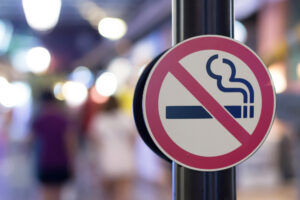What Habits Can Help Prevent Disease & Illness?
August Newsletter
Protect Your Skin From The Sun
Staying guarded against harmful sunrays is essential! While spending time outside can keep you active, provide vitamin D, and boost your mood, it can also put you at risk for skin cancer if preventative measures are not taken.
The CDC warns that the majority of skin cancers are caused by excessive exposure to ultraviolet (UV) light. These invisible rays radiate from the sun and can cause damage to skin cells.
While these rays pose a threat during any time of year, warm summer weather usually means added time outdoors. Follow these best practices to ensure you’re enjoying the sun safely:
- Stay in the shade when possible to avoid direct sunlight.
- Wear proper clothing. If you are spending a day at the beach, for example, have a cover-up/t-shirt, sunglasses, and hat handy.
- Sunscreen is important! Before spending too much time in the sun, apply a generous amount of sunscreen that is SPF 15 or higher. Remember to check your sunscreen’s expiration date and to reapply every two hours as needed.
What Are The Most Common Risk Factors For Lung Cancer?
According to the American Lung Association, approximately 90% of lung cancer cases are linked to smoking. Lung cancer arises when the cells in your lungs mutate and change due to exposure to harmful chemicals. These malicious cells may create a tumor in your lungs, which destroys healthy surrounding tissue.
For World Lung Cancer Day on August 1, read up on the most common risk factors for developing this serious disease (American Lung Association).
- Smoking – This is the number one cause of lung cancer, as well as the most preventable. By avoiding smoking or quitting if you are a current smoker, you are drastically reducing your risk for lung cancer. It is also worth noting that secondhand smoke puts individuals at-risk as well.
- Radon – The second-leading cause of lung cancer is radon, which is a colorless and odorless gas found in one out of every 15 U.S. homes. Many states recommend getting your home tested for radon every few years. If you are a smoker exposed to this gas, your risk for lung cancer increases dramatically.
Exposure to other harmful chemicals or pollution can also increase your risk. Genetics can play a role too, as you are more susceptible to this disease if your family has a history.
Watch this video from the Mayo Clinic to learn about the importance of screening for lung cancer.
Your Guide To Grill Safety
There is no better time to grill a delicious meal than during summer! To ensure that you are safe and healthy as you grill this season, review these tips from the CDC:
- Keep any raw meats separated from other foods while grocery shopping. This lowers your risk for cross-contamination.
- Refrigerate meat, seafood, or poultry until ready to grill. If transporting these items, keep them in an insulated cooler at 40° F or below.
- Dangerous germs can spread quickly at room temperature. Thaw food properly in the fridge, cold water, or microwave.
- Ensure your grill and grilling tools are clean before use.
- Use a food thermometer to ensure that your food is fully cooked and safe to eat.
Stay Up-To-Date On Your Vaccines!
Vaccinations help protect us from life-threatening diseases and illnesses. In honor of National Immunization Awareness Month, take a look at the standard vaccines recommended for adults:
- Flu Shot – Advised on an annual basis for flu season
- Pneumococcal Shot – Administered once or twice in a lifetime
- Tdap (Tetanus, Diphtheria, Pertusis) – Administered once with a follow-up Td booster every 10 years
- Herpes Zoster (Shingles) – Discuss with your doctor
- COVID-19 Vaccine and Booster – Discuss with your doctor
Talk to your doctor to determine if you are due for any immunizations.
Do you know a company or organization that would benefit from working with Empower Health?
Contact sales@empowerhealthservices.com


